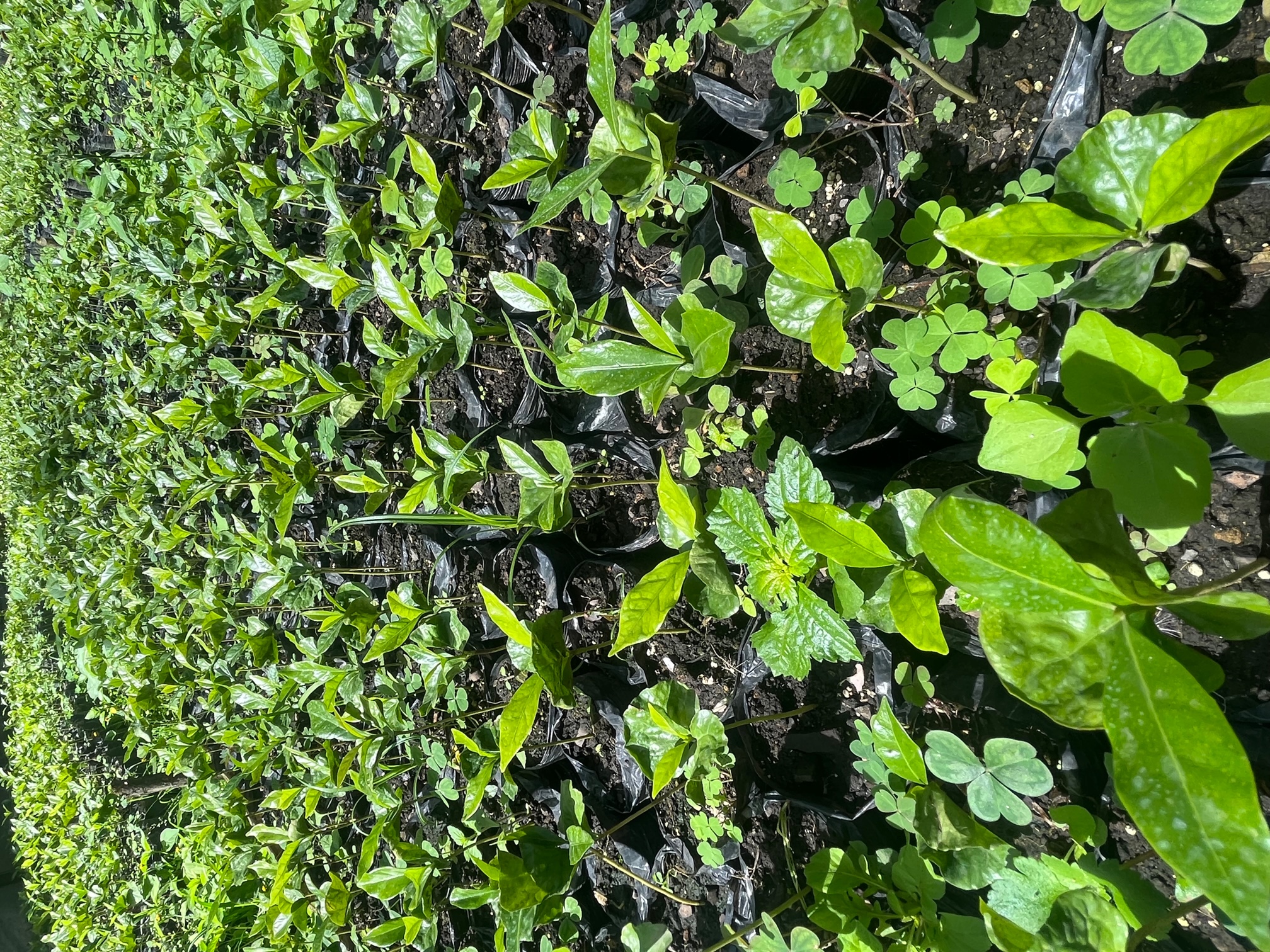- Espresso
- Filter
Viani
- origin
-
colombia
- tastes like
-
juicy
-
stone fruit
-
cocoa
- processing
-
washed
Viani has a special place in our hearts here at MCR as it's a coffee that has been on our list since we started Manhattan Coffee Roasters.
We've been working with DR Wakefield and Racafe to improve the coffee and in line with that also pay more for these improvements. First was the use of GrainPro bags and second an agreed better sorting which allows for less defects. So in time it has massively improved in quality and probably most important has increased income for these small farm holders.
Viani is a small town in Cundinamarca, which is not too far from Bogota, a literal drive down. The "Viani" coffee is made up from coffee from more than 400 small farm holders coming from 5 municipalities and delivered to 3 collection points.
The biggest collection point where about 70% of the coffee for “Viani” comes from, is in Sierra town, ran by Joseel. He gets wet and dry parchment delivered and has a mechanical dryer on site.
When the parchment gets delivered, he’ll check the quality, weight the bag and agrees a price. He’ll immediately pays the farmer in cash and gives them a new empty bag to refill.
Joseel has worked with Racafe for over 23 years and only sells to Luis Fernando the Bogota manager from Racafe and delivers around 10.000 – 13.000 kg per drive down.
Due to climate change production has dropped massively over the last few years, making it even more important to increase revenue over lower harvest yields. The production in Viani is down 50% on what it was 2 years ago. The rain has almost doubled with it raining almost every day in the season. Even though rain is obviously important for the plants you need about 2 – 3 weeks of constant sun with no rain. This will create stress on the plant which will create the need to reproduce, and the tree will flower when it does rain after this period of drought.
Most farmers that contribute to “Viani” have multiple crops besides coffee, like plantaan and avocado. Avovado trees provide shade to the coffee trees as well as spread income risk. During the pandemic the price of avocado dropped a lot, so the income stream from coffee became even more important.
When Esther was at the collection point in Sierra town a farmer Jose Vicente Castiblanco came to deliver a bag of parchment, he has a 4 hectare farm with only 0.65 being used for coffee and most of his income coming from plantaan.
Esther then visited 3 farms that contribute to “Viani”. The first farm was El Refugio (The Sanctuary) at 2.000 masl, a 6 hectare farm hat grown Castillo and Tabi as well as avocado. They use water from a spring for all processing, depulp everything on the farm with a 12 – 14 hour fermentation before it gets dried on covered raised beds. When the cherries are picked they will be stored in a silo for 24 hours before it’s being pulped next day, this unintentionally created a bit more of a hybrid washed as it’s fermenting in the whole cherry overnight.
The owner Cesar Acosta is currently planting Pink Bourbon seedlings as this mutation from the Colombia Variety is leaf rust resistance and he heard the variety has a good cup quality, which could increase revenue.
The second farm, Finca Santa Rosa is a 5 hectare farm at 1.800 masl and grows mainly Castillo. After depulping the cherries are fermented for 12 hours in a silo without water. Then demucilaged, washed with a minimum amount of water and mechanically dried for 14 hours at 45 decrees celcius that runs on cisco (parchment waste)
And the 3rd farm Finca Campo Ermoso owned by Ramiro Piraquive has 23 hectares for catle and only 1 hectare of coffee with 4.000 Castillo trees.
With a lot of these multi crop small farms one can imagine it is hard to improve quality overall as it requires investments on a lot of different farms. We’re looking at the next step at working together at improving this coffee like investing in greenhouses, raised beds covers and processing equipment.
We know a lot of you have supported this coffee from the start, thank you for joining on this ride!
The co-operative at Viani produce an old world and typical profile. It’s big, rich and has just a slight bit of acidity that’s perfect for anyone that wants an intense flavour experience from a coffee.
- country
- colombia
- farm
- various small holders
- producer
- cooperative de operacion nacional agropecuaria
- region
- cundinamarca
- altitude
- 1300-1800masl
- variety
- colombia
- castillo
- typica
